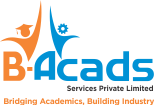Home /
Industry-Academia Partnership: Building value together
In today’s rapidly changing business and educational landscape, collaboration between industry and academia is no longer optional- it’s crucial. When industry and academia collaborate, the result goes beyond just sharing knowledge; it includes co-creating future-ready talent, impactful research, innovative solutions, and a more competitive economy. The most forward-thinking organizations are those that leverage diverse knowledge systems, and academic institutions are uniquely positioned to provide that: structured thinking, in-depth research, and future-ready talent. At the same time, academic institutions thrive when they engage with real-world challenges that bring theory to life and make research more relevant.
An institute’s academic reputation is primarily built on its faculty-their qualifications, research output, and industry engagement. They are the most vital resource because they serve as the intellectual backbone, quality drivers, and key differentiators for any educational institution. Faculty members are subject matter experts, analytical thinkers, and lifelong learners. Their contributions go far beyond teaching; they can be strategic partners, trainers, and catalysts of innovation.
Why partner with faculty to solve business problems?
Why choose faculty for training programs?
How can Industry add value to Academia
A strong industry-academia partnership goes far beyond placements and internships. Industry interactions are crucial for B-schools because they bridge the gap between classroom learning and real-world business practice. These engagements enhance academic relevance by bringing real-world scenarios into classrooms, boost student employability, inspire future talent, and help shape the next generation of business leaders, as well as establish institutional credibility.
Key areas where industry professionals can meaningfully contribute
True collaboration is not transactional—it's transformative. When faculty and industry professionals engage meaningfully, they ignite innovation, address real problems, and shape the next generation of professionals. Meaningful industry-academia partnerships are founded on shared goals and co-creation. Faculty members serve not only as educators but also as consultants, researchers, trainers, and learning partners. Companies become more than recruiters; they become co-developers of knowledge, tools, and future talent.
At B-Acads, we aim to reimagine what’s possible when two powerful ecosystems come together with trust, intention, and purpose. We exist to build this bridge — not just to connect, but to co-create.





